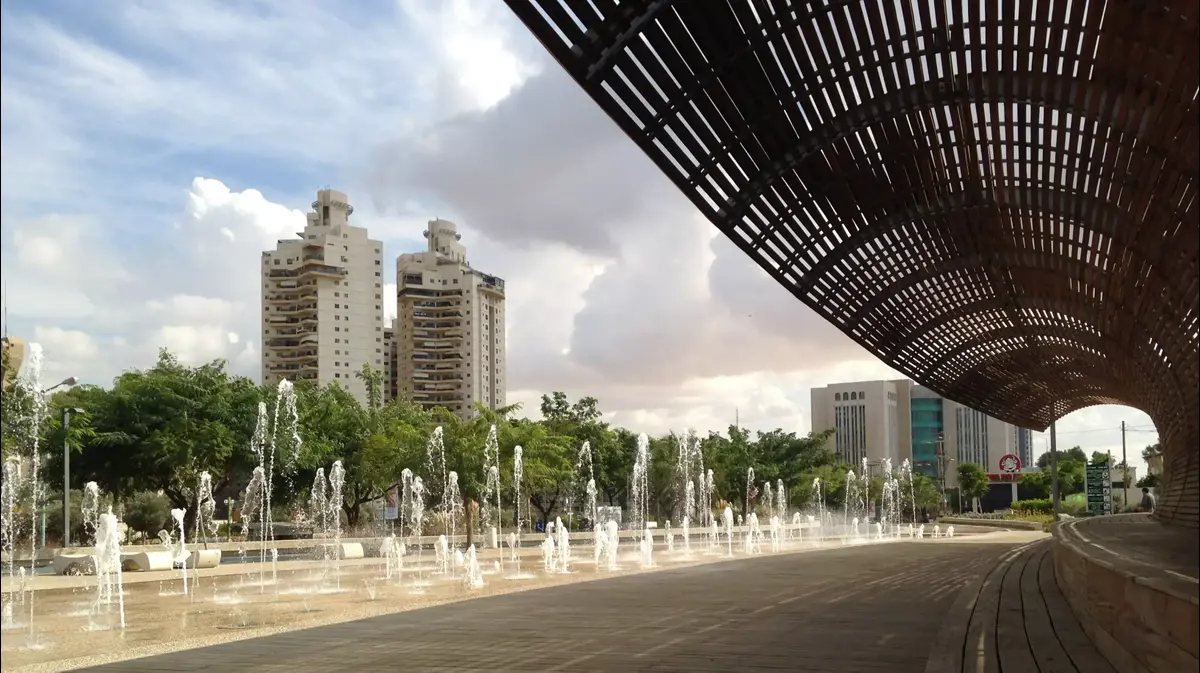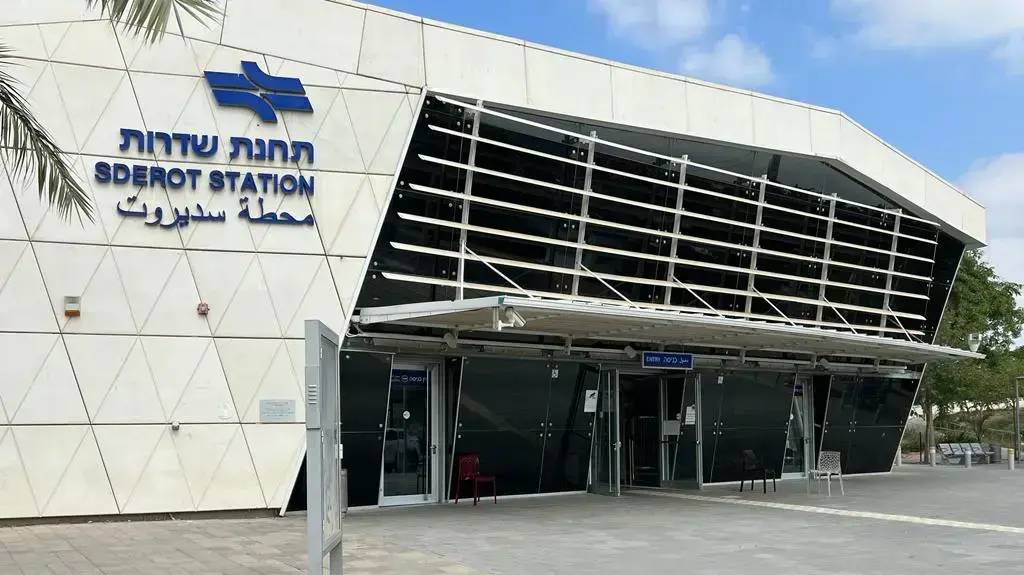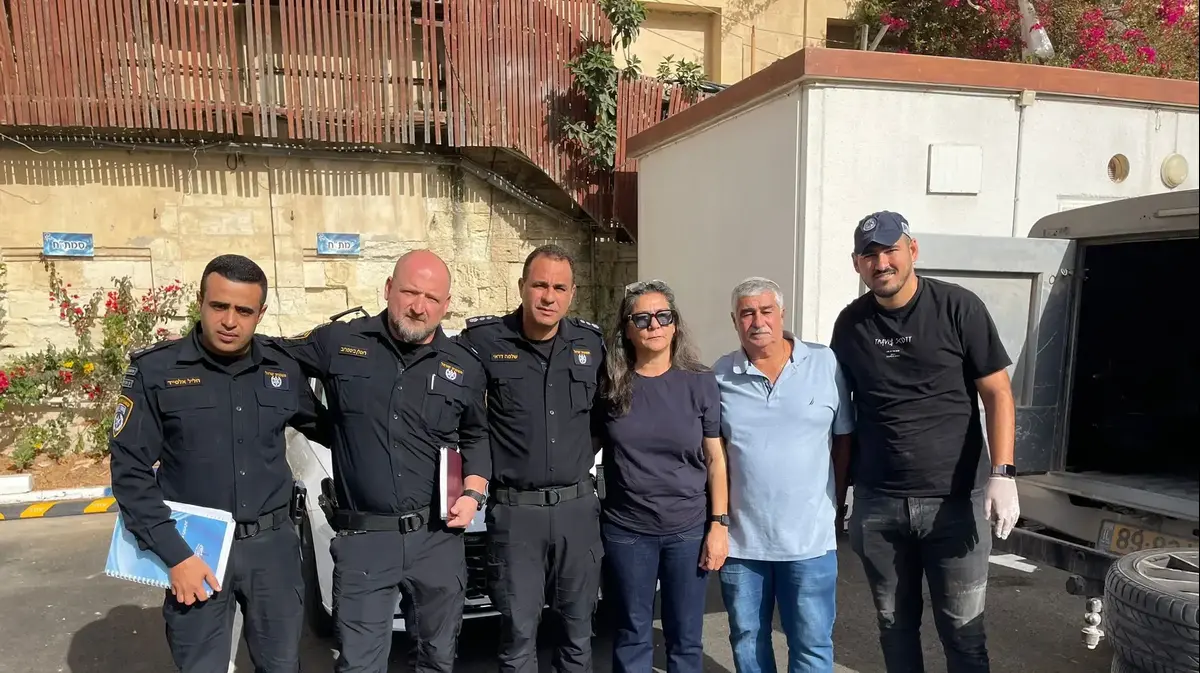Beer Sheva wants to create an innovation district. It is unclear who will budget it
City Hall will define and develop a targeted area to serve as a central meeting point, the university and hospital will remove fences and government ministries to engage in public relations • The Negev Capital's Innovation Quarter Program seeks to create an "ecosystem" for groundbreaking ideas that reveal a soft gut: lack of funding
Is this the step that will move Beersheba forward? The Prime Minister's Office and Housing and Construction, in cooperation with the municipality, Ben-Gurion University and Soroka Hospital, are promoting a plan for the "Innovation Quarter" in the capital of the Negev. The program focuses on the development of a geographical area including the Soroka Hospital, the University, the IDF's communications center (not yet established), Jude D. Neighborhoods and Railway Station Area. Ben Gurion Blvd., which connects Yitzhak Rager Blvd. with Eliyahu Nawi Road (the road to Shoket Junction), will be transformed from a road that goes along it, to a bustling and urban street, with the program planners giving example of "Rothschild Boulevard" in Tel Aviv as an inspiration for the complex.
As part of increasing the pedestrian space, some of the settings around the university and the hospital will be eliminated. Commercial complexes will also be developed, with emphasis on food stalls, at Ben Gurion Boulevard and Arlozorov Street. Architect David Glore was charged with planning the project.
Senior Director of Strategic Planning and Policy at the Ministry of Construction and Housing, Nathaniel Lapidot, explained to "Globes" that up to now NIS 2.2 million has been invested in the initial planning of the project, and that this is a long process. "We have defined our plan as a strategic, skeletal plan. The next step is to create a city building plan through which building permits can be issued. Even before we launched the project, there has been interest in collaborations and philanthropy," Lapidot explained.
The Ministry of Housing, managed by Benny Dreyfus, explained that "the phase after launching the program will focus on initial economic investments in areas such as digital health, desert and cyber, which are expected to raise tens of millions of shekels.
However, the question of "Globes" about how the project was funded remained unanswered. In other words, as of now, nobody is clear about where the budget for the project will come from.
Started in Barcelona, will continue in Beer Sheva?
Beyond physical change, planning is to create a climate for idea development and realization. In recent years, a new concept has been developed in the field of urbanization known as Innovation Districts. This refers to disadvantaged areas that are being renewed through collaborations between the public and business sectors that are high-tech oriented. These areas are generally compact, have transport access, and of course contain housing, office and commercial space. This means that alongside these will be anchor institutions that connect with startups and business incubators.
The first such project began in 2000 in the Poblenou industrial district of Barcelona, and has since continued to dozens of locations around the world.
A key concept in the field is the creation of an "ecosystem". That is, encouraging physical closeness between research and community creation. "The Negev faces health challenges, including genetic disorders, local exposure of the environment to industrial waste, as well as solar radiation, heat load and desert dust. Therefore, the region provides researchers with a unique living laboratory for finding ways to cope with local conditions. Against social, environmental, Global climate change, warming and desertification, the PA, seeks to take advantage of the location in favor of cyber security ventures, "digital health," promoting sustainable desert agriculture, and urban renewal, as well, the document accompanying the program's presentation.
Yuval Edmon, deputy head of the National Council of Economics, who is leading the move by the prime minister's office, explains that "Innovation quarters usually happen in limited geographical areas within cities, where there is a critical mass of academic institutions, hospitals and startups. The goal here is to get a similar thing happening in Rothschild in Tel Aviv - that you meet people at random and exchange ideas. "
Town planner Ran Wolf, who takes part in the WC program, adds that "a lot of sectors have cooperated. Hospital, university, different types of research. Our challenge was to empower them. It was clear to us from the beginning that this was a long-term job. The WC may be desert and there is not much money, but there is faith in the leadership. "
"Creating an ecosystem and giving up on an agosystem"
Mayor Rubik Danilovic told Globes he believes in the process. "BS understands that if it wants to be a relevant city, it must advance its time. The subject of knowledge, innovation and technology is becoming very, very critical, and we are moving forward on this. Everything is starting to focus on the city, much thanks to the move of the elite elite units, the National Cyber Array, Otto We towards the establishment of the Intelligence Center. All these things show that the city is far beyond its convergence inward. It has the potential to be part of something global.
Why should something change now?
"We came to maturity. And besides, we put our ego aside. We set up an ecosystem, but give up on the agosystem. To be relevant, the story is not money, but the human story. No one alone can make a breakthrough. We understand the power of partnership in a changing age These connections can be a power multiplier. "
What significance does the initiative have for the old and poor neighborhoods of Jude D?
"We make this area not just the city center, but the center of the world. The conceptual plan will integrate with a physical plan. It's a big investment in the public space. As soon as innovation and technology bodies come in, I expect entrepreneurship will come into the picture as well, and we will begin urban renewal. We know how we were laughed at eight years ago when we said we were doing high-tech here in Kiryat Li? It was clear that we had the academic quality and human capital. We decided that if in Great America they founded Silicon Valley, We're setting up Silicon Wadi here. "
Commentary: Still Far from a High-Tech City | Omri Zrahovich
Six years ago, Prime Minister Benjamin Netanyahu opened the CyberTech conference in a statement: "Beer Sheva is becoming the cyber center not only of Israel, but of the entire Western hemisphere. This is my updated vision of David Ben-Gurion's vision." But as they say - talk (or vision) alone and reality separate. In practice, it is hard to say that turning Beer Sheva into a technology center is a success.
While companies like Del-EMC, Melanox, Wix, AudioCodes, Raphael and others have a branch in Beersheba and employ high-tech companies in the city of about 2,000-3,000 employees, it is not yet a mass. People in the field say this is an artificial transplant attempt to create an ecosystem that is trying to compete in Tel Aviv, and in the meantime without success.
The goal is undoubtedly important - the growth of other peripheral employment centers will enable us to address the economic and social challenges facing the state. But building an ecosystem suffers from the egg and chicken problem - workers do not move to the south because there is not enough employment, and companies do not open a branch there because there are no employees. Startups that start out in Beer Sheva usually move to the center of the country to get employees.
What was supposed to speed up the move is the transfer of the technology units to the south, which is currently unclear as to their status. So far, the Cyber Center has enjoyed mostly positive PR and branding, but it's time to realize that may be helpful at first, but doesn't really provide a real solution.
Good to Know (Promoted Content) Good to Know (Promoted Content)70,000 people are not mistaken: this is how the knee or back pain is treated
Apothecary
To the full article














